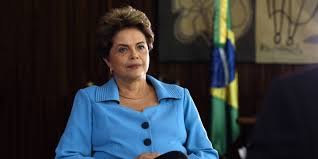She has been unanimously elected to lead NDB
Dilma Vana Rousseff former president of Brazil has been "unanimously elected" to lead the New Development Bank (NDB), a global financial institution established by the five BRICS (Brazil, Russia, India, China, and South Africa) countries on Friday. She succeeded Marcus Troyjo who is also from Brazil and was previously heading the the organisation.
The NDB is a multilateral development bank established by Brazil, Russia, India, China and South Africa (BRICS) with the purpose of mobilizing resources for infrastructure and sustainable development projects in emerging markets and developing countries (EMDCs).
"The Board of Governors unanimously elected H.E. Mrs. Dilma Vana Rousseff as the President of the Bank, effective immediately, in full accordance with the Articles of Agreement of the New Development Bank and the procedures of the President election," the bank said in a statement.
According to a Reuters report from Brasilia, Rousseff will be part of a high-level official group accompanying President Lula, who is considered her political mentor and will meet Chinese President Xi Jinping on March 28 in Beijing. President Luna is also the first foreign leader to meet the Chinese President Xi Jinping since he secured a record-breaking third term as president earlier in March.
Dilma Rousseff was the President of the Federative Republic of Brazil from January 2011 to August 2016. Rousseff was elected President of Brazil for two consecutive terms.
Rousseff prioritised economic stability and job development throughout her tenure as the president while simultaneously expanding social programmes aimed at eliminating poverty. Brazil was removed from the UN's Hunger Map under her tenure as a result of one of the most substantial poverty-reduction programmes in the country's history.
However she was impeached in 2016 with her being accused of moving funds between government budgets, which is illegal under Brazilian law. Though there was no evidence she was directly involved in the corruption, Rousseff was part of the organisation that was directly involved in the issue.





The Brief. Sign up to receive the top stories you need to know right now.